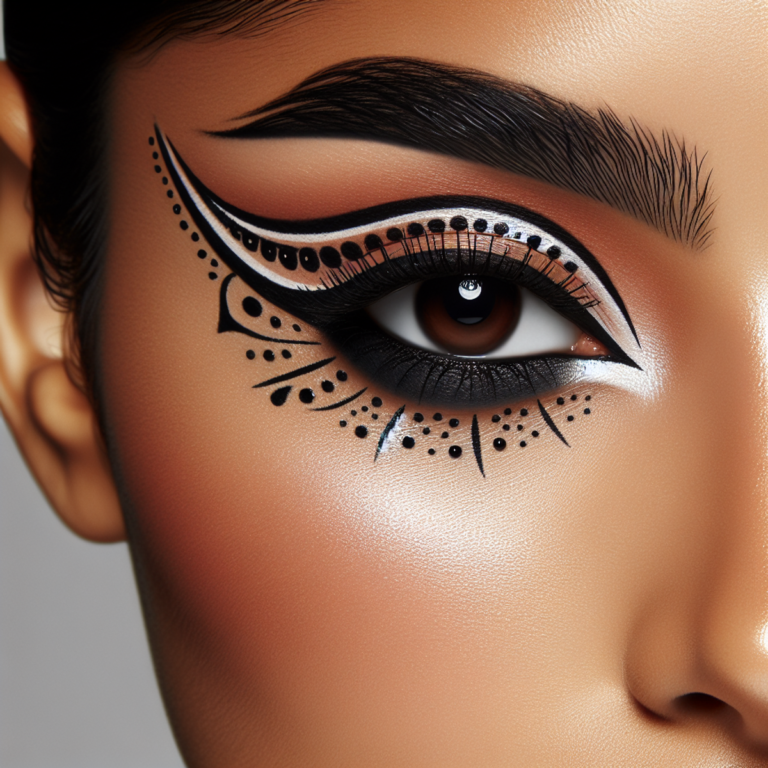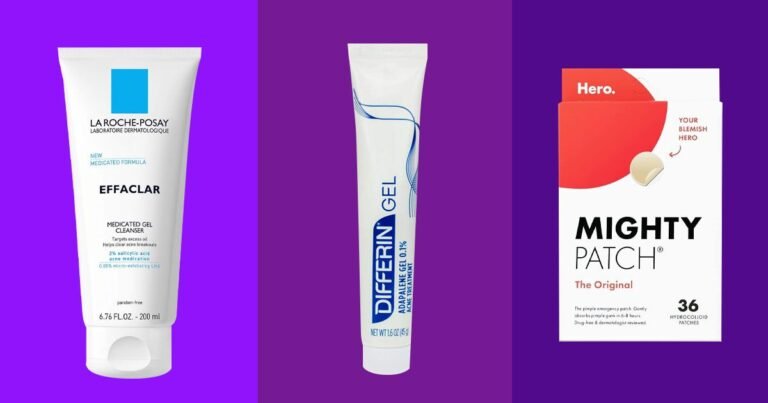The Best Acne-Fighting Skincare Routine, According to Dermatologists

Introduction
Acne is a common and frustrating skin condition that can affect people of all ages. The key to managing acne effectively is to have a targeted skincare routine that specifically addresses its concerns. Dermatologists recommend a comprehensive approach to skincare that not only treats acne but also takes care of the overall health of the skin.
In this article, we will discuss the most effective skincare routine for fighting acne, as recommended by dermatologists. By following this expert advice, you can see significant improvements in your acne and achieve healthier skin overall.
We will cover the essential steps of this acne-fighting skincare routine in detail, explaining everything you need to know about each one:
- Cleansing: How to properly cleanse your skin to remove excess oil, dirt, and impurities.
- Treatment: The best ingredients and products for treating acne.
- Moisturizing: Why moisturizing is important for acne-prone skin and how to choose the right moisturizer.
- Sun Protection: The importance of protecting your skin from harmful UV rays, even if you have acne.
By understanding the role of each step and following the recommendations provided, you can effectively manage your acne and improve the overall health of your skin.
Step 1: Cleanser
The first and crucial step in the acne-fighting routine is cleansing. It sets the foundation for clear and healthy skin by removing impurities, excess oil, and bacteria that can contribute to breakouts. Choosing the right cleanser is key to effectively target acne while maintaining the skin’s natural balance.
Benefits of an Acne-Fighting Cleanser:
- Targeted Breakout Control: Acne-fighting cleansers are specifically formulated with ingredients like salicylic acid, which have proven efficacy in combating acne. Salicylic acid helps unclog pores, exfoliate dead skin cells, and reduce inflammation, making it an excellent choice for those struggling with breakouts.
- Gentle Exfoliation: These cleansers often provide gentle exfoliation, helping to remove built-up dead skin cells and prevent pore blockage. This can result in a smoother complexion and decreased likelihood of future breakouts.
- Oil Control: Many acne cleansers also help regulate oil production, which is essential for individuals with oily or combination skin types prone to acne. By reducing excess oil on the surface of the skin, these cleansers can minimize shine and create a more balanced complexion.
It’s important to note that while acne-fighting cleansers can be highly effective, they should be used as part of a comprehensive skincare routine rather than a stand-alone treatment. Combining them with other targeted products will yield better results.
Choosing a Gentle Cleanser:
While treating acne is a priority, it’s equally important to choose a gentle cleanser that won’t strip the skin’s natural moisture barrier. Harsh or drying cleansers can lead to irritation, inflammation, and even increased oil production as the skin tries to compensate for lost moisture.
Look for cleansers that are:
- Sulfate-free: Sulfates can be harsh on the skin and may cause irritation.
- Non-comedogenic: Non-comedogenic cleansers are formulated to not clog pores, reducing the risk of further breakouts.
- pH-balanced: A cleanser with a pH level close to that of the skin helps maintain the skin’s natural protective barrier.
Top-Rated Acne Cleansers:
There are numerous acne cleansers available in the market, each with its own unique formulation and set of benefits. Here are a few top-rated options:
- CeraVe Renewing SA Cleanser: This cleanser contains salicylic acid and ceramides, which help exfoliate and hydrate the skin simultaneously. It is gentle enough for daily use and is suitable for all skin types.
- Neutrogena Oil-Free Acne Wash: Formulated with salicylic acid, this cleanser effectively clears breakouts and prevents new ones from forming. It also helps reduce excess oil without over-drying the skin.
- La Roche-Posay Effaclar Medicated Gel Cleanser: This gel cleanser contains 2% salicylic acid to target acne-causing bacteria and unclog pores. It is oil
Step 2: Treatment
The second step in your acne-fighting routine involves targeted treatments to address existing acne and prevent new breakouts.
1. Topical Treatments
Retinoids: These vitamin A derivatives work by promoting skin cell turnover, preventing pores from becoming clogged. They are particularly effective for comedonal acne (blackheads and whiteheads).
Benzoyl Peroxide: This ingredient helps kill bacteria on the skin and can also reduce oil production. It is beneficial for inflammatory acne (papules and pustules).
2. Prescription Medication
If over-the-counter products fail to show improvement after a few weeks, it may be time to consider prescription-strength medication. Always consult a dermatologist before starting any prescription treatment.
3. Combination Therapy
In some cases, a combination of topical treatments may be prescribed to address different aspects of acne formation.
4. Alternative Treatments
LED light therapy, especially blue light therapy, can complement traditional topical treatments. It works by targeting the bacteria that contribute to acne breakouts.
5. Mild Over-the-Counter Options
For milder cases of acne, over-the-counter products containing ingredients like salicylic acid or tea tree oil can serve as effective mild treatment options.
By tailoring your treatment to the specific type of acne you have, you can effectively manage existing breakouts and prevent new ones from forming. Always remember to seek professional guidance for severe or persistent acne.
Step 3: Moisturizer and Sunscreen
Maintaining skin hydration with a suitable moisturizer is crucial even for acne-prone individuals. However, it’s important to choose the right product that won’t clog pores or aggravate acne. Here’s why moisturizer and sunscreen play a vital role in your acne-fighting skincare routine:
- Hydration is key: Contrary to popular belief, moisturizing is essential for all skin types, including oily and acne-prone skin. When your skin lacks moisture, it may overproduce sebum, leading to clogged pores and breakouts. Look for a lightweight, non-comedogenic moisturizer that won’t feel heavy on the skin or cause further congestion.
- Choosing the right moisturizer: When selecting a moisturizer for acne-prone skin, opt for products labeled as non-comedogenic and oil-free. Non-comedogenic means the product is formulated to not clog pores, reducing the risk of breakouts. Oil-free formulations are ideal for those with oily or combination skin, as they won’t add excess oil to the skin’s surface.
- Sun protection is crucial: Sunscreen is often overlooked in an acne-fighting skincare routine, but it plays a crucial role in preventing post-inflammatory hyperpigmentation (PIH). Acne lesions can leave behind dark spots or discoloration on the skin, and sun exposure can make them worse. Therefore, incorporating sunscreen into your daily routine is essential.
- Requirements for acne-friendly sunscreen: When choosing a sunscreen for acne-prone skin, there are specific requirements to consider:
- Non-comedogenic: Look for sunscreens labeled as non-comedogenic to ensure they won’t clog pores or worsen acne.
- SPF: Opt for a broad-spectrum sunscreen with at least SPF 30 to protect your skin from both UVA and UVB rays.
- Oil-free: Similar to moisturizers, choose oil-free sunscreens to avoid additional greasiness on the skin.
- Lightweight texture: Sunscreen formulas that feel lightweight and absorb quickly are preferable for acne-prone skin.
- Double duty with moisturizer-sunscreen hybrids: If you prefer a simplified routine or have limited time, consider using a moisturizer with built-in SPF. These hybrid products provide both hydration and sun protection in one step. However, ensure the product meets the requirements mentioned above, especially non-comedogenic and at least SPF 30.
By incorporating a suitable moisturizer and sunscreen into your acne-fighting skincare routine, you ensure your skin is hydrated, protected from the sun’s harmful rays, and less prone to post-inflammatory hyperpigmentation. Remember to apply your moisturizer first, allowing it to fully absorb into the skin before applying sunscreen.
Additional Tips for Comprehensive Acne Care Routine
In addition to the key steps discussed above, here are some extra tips to enhance your acne care routine:
- Morning routine: In the morning, after cleansing, consider using targeted serums or spot treatments that contain ingredients like niacinamide or vitamin C for daytime protection and repair. These ingredients can help reduce inflammation and promote healing.
- Nighttime routine: A consistent nighttime skincare routine is crucial for supporting the skin’s natural renewal processes. Use a gentle cleanser followed by hydrating products like a lightweight moisturizer or hyaluronic acid serum. Additionally, incorporate any additional over-the-counter topicals recommended by your dermatologist, such as sulfur masks occasionally for extra blemish control.
- Lifestyle factors and dietary adjustments: Certain lifestyle factors can impact acne severity. Maintaining a healthy lifestyle overall can positively influence your skin health. Consider making dietary adjustments by incorporating more anti-inflammatory foods like fatty fish and leafy greens, while reducing excessive sugar and dairy intake. Managing stress through regular exercise, meditation, or journaling can also support skin health.
Remember that while following a dermatologist-recommended skincare routine is crucial for managing acne, it’s important to have realistic expectations. Acne treatment often takes time to show results, and persistence is key. If over-the-counter topicals fail to improve your acne after four weeks, it may be necessary to consult a dermatologist for personalized advice and potential prescription medication.
Additional Tips for a Comprehensive Acne Care Routine
When it comes to managing acne, a comprehensive skincare routine goes beyond the basic steps of cleansing, treating, moisturizing, and protecting with sunscreen. To achieve clear and healthy skin, it’s important to incorporate additional steps into your morning and nighttime routines. Here are some additional tips recommended by dermatologists:
Morning Skincare Routine:
- Cleanse: Start your day by cleansing your face with a gentle cleanser suitable for acne-prone skin. Look for one that contains ingredients like salicylic acid or benzoyl peroxide to help control breakouts. Avoid using harsh scrubs or abrasive cleansers as they can irritate the skin and worsen acne.
- Targeted Serums or Spot Treatments: After cleansing, consider applying targeted serums or spot treatments to address specific concerns. Look for products that contain ingredients like niacinamide or tea tree oil, which have anti-inflammatory properties and can help reduce redness and inflammation associated with acne.
- Moisturize: Even if you have oily or acne-prone skin, moisturizing is still an essential step in your skincare routine. Opt for a lightweight, non-comedogenic moisturizer that won’t clog pores. Look for ingredients like hyaluronic acid or ceramides that help hydrate the skin without adding excess oil.
- Sunscreen: Don’t forget to protect your skin from harmful UV rays by applying a broad-spectrum sunscreen with an SPF of 30 or higher. Look for oil-free or non-comedogenic formulas to avoid clogging pores. Sunscreen is particularly important for individuals with acne as it can help prevent post-inflammatory hyperpigmentation (PIH), which can occur after acne lesions heal.
Nighttime Skincare Routine:
- Double Cleanse: In the evening, start by double cleansing your face to remove makeup, sunscreen, and any impurities that have accumulated throughout the day. Begin with an oil-based cleanser to dissolve and remove oil-based products, followed by a gentle water-based cleanser to thoroughly cleanse the skin.
- Hydrating Products: After cleansing, focus on replenishing and hydrating your skin. Consider using a hydrating toner or essence to provide an extra layer of moisture. Look for ingredients like hyaluronic acid or glycerin that attract and retain moisture in the skin.
- Overnight Treatments: Nighttime is the perfect opportunity to incorporate more intensive treatments into your routine. Retinoids are highly recommended by dermatologists for their ability to unclog pores, accelerate cell turnover, and reduce acne lesions. Start with a low concentration and gradually increase as tolerated. If you have sensitive skin or are unable to tolerate retinoids, consider using a gentle chemical exfoliant containing alpha-hydroxy acids (AHAs) or beta-hydroxy acids (BHAs) to help unclog pores and smooth the skin’s texture.
- Occasional Extras: To further enhance your acne care routine, you can occasionally incorporate additional over-the-counter topicals like sulfur masks or spot treatments containing ingredients like tea tree oil or benzoyl peroxide. These can provide extra blemish control when needed but should not be used excessively as they may cause dryness or irritation.
By following these additional tips for your morning and nighttime skincare routines, you can provide your skin with the extra care it needs to effectively manage acne. Remember, consistency is key when it comes to achieving clear and healthy skin. Be patient and give your routine time to work, but if you’re not seeing improvement after four weeks of consistent use, it may be time to consult a dermatologist for personalized advice and treatment options tailored to your specific needs.
Lifestyle Factors and Dietary Adjustments
Certain lifestyle factors, including diet and stress levels, can significantly impact the severity of acne. It’s important for individuals to maintain a healthy lifestyle overall in order to support their skin health. Here are some recommendations for lifestyle adjustments that may help reduce acne:
Dietary Changes
Incorporating certain foods into your diet while avoiding others can help reduce inflammation in the skin and improve acne symptoms. Consider the following dietary adjustments:
- Increase intake of anti-inflammatory foods: Including more foods rich in omega-3 fatty acids, such as fatty fish (salmon, mackerel) and walnuts, can have anti-inflammatory effects on the skin. Additionally, consuming foods high in antioxidants, such as leafy greens (spinach, kale), and berries can promote skin health.
- Limit excessive sugar intake: High consumption of refined sugars and carbohydrates can trigger blood sugar spikes, leading to increased production of insulin and other hormones that may contribute to acne flare-ups. Opting for whole grains instead of refined carbohydrates and reducing your intake of sugary snacks and drinks is advisable.
- Consider dairy intake: Some studies suggest a potential link between dairy consumption and acne. If you notice that your acne worsens after consuming dairy products, try reducing your intake or switching to non-dairy alternatives.
Stress Management
Chronic stress has been associated with an increase in sebum production and hormonal imbalances, both of which can contribute to acne development. Implementing stress management techniques can be beneficial for overall skin health. Consider the following strategies:
- Engage in regular exercise: Physical activity not only helps reduce stress but also improves blood circulation, delivering oxygen and nutrients to the skin while removing waste products.
- Practice meditation or mindfulness: These techniques can help calm the mind and reduce stress levels. Try incorporating meditation into your daily routine, even if it’s just for a few minutes.
- Consider journaling: Writing down your thoughts and feelings can be a cathartic practice that helps manage stress. Consider keeping a journal to express yourself and reflect on your emotions.
It’s important to note that lifestyle changes alone may not completely resolve acne issues, especially in more severe cases. However, incorporating these adjustments into your routine can complement your skincare regimen and contribute to overall skin health.
Remember, everyone’s skin is different, and what works for one person may not work for another. If you’re struggling with persistent or severe acne, it’s best to consult a dermatologist who can provide personalized advice and treatment options tailored to your specific needs. They are the best resource to help you achieve clear and healthy skin.
For those dealing with other common skin conditions like rosacea, eczema, or seeking more comprehensive insights into overall skin health, resources such as the Huberman Lab podcast or articles like these on [acne elimination strategies](https://drhyman.com/blogs/content/10-simple-strategies-to-eliminate-acne-huffington
The Importance of Professional Guidance
Seeking professional advice from a dermatologist is crucial for individuals with persistent or severe acne cases. Dermatologists have specialized knowledge and expertise in treating acne and can provide personalized treatment options based on an individual’s specific needs. Here are some key reasons why professional guidance is essential:
1. Specialized treatments
Dermatologists can offer specialized treatments that may not be available over the counter. In cases where over-the-counter topicals fail to show results after four weeks, prescription medications such as oral antibiotics, hormonal therapy, or isotretinoin may be necessary. Dermatologists can evaluate the severity of acne and recommend the most effective treatment options.
2. In-office procedures
For individuals with severe acne or scarring, in-office procedures like chemical peels, microdermabrasion, or laser therapy may be beneficial. These procedures are performed under the supervision of a dermatologist and can help improve the appearance of acne and reduce scarring.
3. Realistic expectations
Acne treatment often takes time to show results. Dermatologists can provide realistic expectations and guide individuals through the treatment process. They can explain the timeline for improvement and address any concerns or questions along the way.
4. Individualized skincare routine
A dermatologist can assess an individual’s skin type, acne severity, and any underlying conditions to create a tailored skincare routine. This includes recommending suitable cleansers, treatments, moisturizers, and sunscreens specifically formulated for acne-prone skin.
It’s important to note that while professional guidance is valuable, consistency is key in following the recommended skincare routine. Acne treatment requires patience and persistence to achieve optimal results. Consulting a dermatologist ensures that individuals receive the best care possible for their acne concerns.
Conclusion
To achieve clear and healthy skin, it is essential to follow a targeted skincare routine designed to combat acne. Dermatologists recommend a four-step routine consisting of cleanser, treatment, moisturizer, and sunscreen. By incorporating these steps into your daily regimen, you can effectively manage acne and improve overall skin health.
Here are the key steps and recommendations for an effective acne-fighting skincare routine based on dermatologists’ expertise:
- Cleanser: Start with a gentle cleanser that removes impurities, excess oil, and bacteria without stripping the skin’s natural moisture barrier. Look for acne-fighting cleansers formulated with ingredients like salicylic acid to effectively target breakouts.
- Treatment: Apply targeted treatments to address existing acne and prevent new ones from forming. Topical treatments such as retinoids and benzoyl peroxide can be effective for different types of acne lesions. Consider seeking prescription-strength medication if over-the-counter options do not yield results.
- Moisturizer and Sunscreen: Hydrating the skin with a suitable moisturizer is crucial for all individuals, even those with acne-prone skin. Choose non-comedogenic, oil-free moisturizers to avoid clogging pores. Additionally, protect your skin from harmful UV rays by using a non-comedogenic sunscreen with SPF and broad-spectrum protection.
In addition to these key steps, here are some additional tips to enhance your acne care routine:
- Maintain a simple yet effective morning skincare routine that includes targeted serums or spot treatments for daytime protection and repair.
- Follow a consistent nighttime skincare routine that supports the skin’s natural renewal processes. Use gentle cleansers and hydrating products in this regimen.
- Consider incorporating occasional treatments like sulfur masks for extra blemish control.
While following this skincare routine is crucial, it is equally important to seek professional guidance from a dermatologist for persistent or severe acne cases. They can provide personalized advice and treatment options tailored to your specific needs.
By following the best acne-fighting skincare routine recommended by dermatologists and consulting with a professional, you can achieve clear and healthy skin. Start implementing these steps today and embrace the journey towards a blemish-free complexion.










